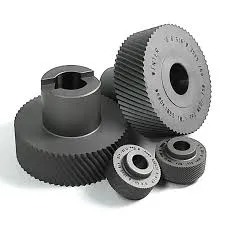
-
 Afrikaans
Afrikaans -
 Albanian
Albanian -
 Amharic
Amharic -
 Arabic
Arabic -
 Armenian
Armenian -
 Azerbaijani
Azerbaijani -
 Basque
Basque -
 Belarusian
Belarusian -
 Bengali
Bengali -
 Bosnian
Bosnian -
 Bulgarian
Bulgarian -
 Catalan
Catalan -
 Cebuano
Cebuano -
 Corsican
Corsican -
 Croatian
Croatian -
 Czech
Czech -
 Danish
Danish -
 Dutch
Dutch -
 English
English -
 Esperanto
Esperanto -
 Estonian
Estonian -
 Finnish
Finnish -
 French
French -
 Frisian
Frisian -
 Galician
Galician -
 Georgian
Georgian -
 German
German -
 Greek
Greek -
 Gujarati
Gujarati -
 Haitian Creole
Haitian Creole -
 hausa
hausa -
 hawaiian
hawaiian -
 Hebrew
Hebrew -
 Hindi
Hindi -
 Miao
Miao -
 Hungarian
Hungarian -
 Icelandic
Icelandic -
 igbo
igbo -
 Indonesian
Indonesian -
 irish
irish -
 Italian
Italian -
 Japanese
Japanese -
 Javanese
Javanese -
 Kannada
Kannada -
 kazakh
kazakh -
 Khmer
Khmer -
 Rwandese
Rwandese -
 Korean
Korean -
 Kurdish
Kurdish -
 Kyrgyz
Kyrgyz -
 Lao
Lao -
 Latin
Latin -
 Latvian
Latvian -
 Lithuanian
Lithuanian -
 Luxembourgish
Luxembourgish -
 Macedonian
Macedonian -
 Malgashi
Malgashi -
 Malay
Malay -
 Malayalam
Malayalam -
 Maltese
Maltese -
 Maori
Maori -
 Marathi
Marathi -
 Mongolian
Mongolian -
 Myanmar
Myanmar -
 Nepali
Nepali -
 Norwegian
Norwegian -
 Norwegian
Norwegian -
 Occitan
Occitan -
 Pashto
Pashto -
 Persian
Persian -
 Polish
Polish -
 Portuguese
Portuguese -
 Punjabi
Punjabi -
 Romanian
Romanian -
 Russian
Russian -
 Samoan
Samoan -
 Scottish Gaelic
Scottish Gaelic -
 Serbian
Serbian -
 Sesotho
Sesotho -
 Shona
Shona -
 Sindhi
Sindhi -
 Sinhala
Sinhala -
 Slovak
Slovak -
 Slovenian
Slovenian -
 Somali
Somali -
 Spanish
Spanish -
 Sundanese
Sundanese -
 Swahili
Swahili -
 Swedish
Swedish -
 Tagalog
Tagalog -
 Tajik
Tajik -
 Tamil
Tamil -
 Tatar
Tatar -
 Telugu
Telugu -
 Thai
Thai -
 Turkish
Turkish -
 Turkmen
Turkmen -
 Ukrainian
Ukrainian -
 Urdu
Urdu -
 Uighur
Uighur -
 Uzbek
Uzbek -
 Vietnamese
Vietnamese -
 Welsh
Welsh -
 Bantu
Bantu -
 Yiddish
Yiddish -
 Yoruba
Yoruba -
 Zulu
Zulu
Hydraulic Thread Rolling Machines for Precision Metal Fabrication and Manufacturing Solutions
The Advantages and Applications of Hydraulic Thread Rolling Machines
Hydraulic thread rolling machines are essential tools in modern manufacturing, particularly for the production of high-precision threaded components. These machines utilize hydraulic power to create threads on various materials, ensuring enhanced performance and consistent quality. In this article, we will explore the operational mechanisms, benefits, and diverse applications of hydraulic thread rolling machines.
Understanding Hydraulic Thread Rolling
Hydraulic thread rolling is a cold-forming process that involves deforming a workpiece to produce threads. Unlike traditional cutting methods, which remove material to create a thread, rolling compresses the material, resulting in a stronger and more durable thread. The key components of a hydraulic thread rolling machine include hydraulic cylinders, rollers, and a feeding mechanism, all of which work in harmony to produce intricate and precise thread forms.
The process begins with the workpiece being fed into the machine, where it is then subjected to rolling by two or more rotating rollers. The application of high hydraulic pressure helps in shaping the material, forming the desired thread profile without generating excessive heat. This cold-forming method not only improves the mechanical properties of the material but also reduces waste and minimizes production costs.
Advantages of Hydraulic Thread Rolling Machines
1. Enhanced Strength and Durability The cold-forming process increases the density of the material, resulting in threads that exhibit greater tensile strength and resistance to wear and fatigue. This feature is particularly beneficial for components used in high-stress environments.
2. Precision and Consistency Hydraulic thread rolling machines are known for their ability to produce uniform and precise threads. The hydraulic system allows for accurate control over pressure and speed, ensuring that every piece meets stringent specifications. This consistency is critical in applications where interchangeability of parts is necessary.
3. Reduced Material Waste By reshaping the material rather than cutting it away, hydraulic thread rolling generates minimal waste. This not only contributes to cost savings but also aligns with sustainable manufacturing practices.
hydraulic thread rolling machine products

4. Versatility Hydraulic thread rolling machines can work with a variety of materials, including metals such as steel, aluminum, and brass. They are capable of producing threads of different sizes and profiles, making them adaptable to various industrial needs.
5. Increased Production Efficiency These machines are designed for high-speed operation, which significantly boosts throughput. The quick changeover capabilities also allow manufacturers to switch between different types of threads with ease, enhancing overall operational efficiency.
Applications Across Industries
Hydraulic thread rolling machines find applications across numerous industries, including automotive, aerospace, construction, and electronics. Some common uses include
- Fasteners The automotive and aerospace industries rely heavily on threaded fasteners, such as bolts and screws, which require precise dimensions and high strength. Hydraulic thread rolling machines are ideal for producing these components.
- Pipes and Fittings In the construction and plumbing sectors, threaded pipes and fittings are crucial for ensuring proper connections and flow. Hydraulic thread rolling provides the necessary strength and tightness for these applications.
- Electrical Components In the electronics industry, threaded connectors and terminals are essential for secure electrical connections. The precision offered by hydraulic thread rolling machines is vital for manufacturing such delicate components.
In conclusion, hydraulic thread rolling machines represent a significant advancement in the production of threaded components. Their ability to enhance strength, ensure precision, and provide versatility makes them invaluable in various manufacturing sectors. As industries continue to evolve and demand higher quality and more efficient production methods, the role of hydraulic thread rolling machines is expected to grow, paving the way for innovation and progress in manufacturing technology. With their numerous advantages, these machines are undoubtedly a cornerstone of modern industrial practices.
